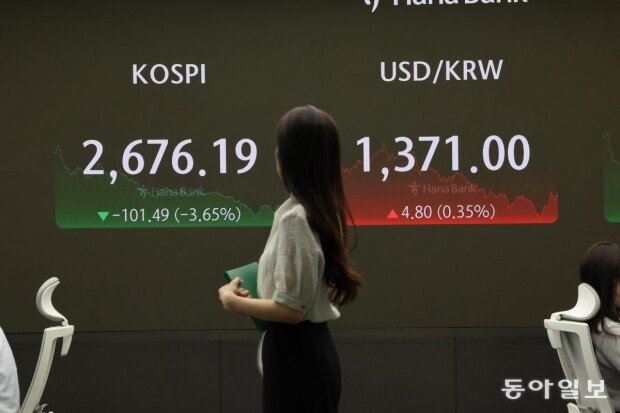The ‘visible hand’ alone cannot control prices
The ‘visible hand’ alone cannot control prices
Posted August. 03, 2024 07:52,
Updated August. 03, 2024 07:52

Last month, consumer prices rose by 2.6% compared to the same month last year. The increase, which had been declining for three consecutive months until June, rebounded due to the 'monsoon rains' and political instability in the Middle East. Notably, agricultural product prices surged by 9%, making the prices perceived by the public even higher. As dissatisfaction with rising prices grows, the government’s intervention in the market continues.
In the first half of this year, government ministries directly or indirectly requested companies to freeze or lower prices about 70 times, with interventions occurring about 2-3 times a week. The Ministry of Agriculture, Food, and Rural Affairs, which faced significant pressure ahead of the April 10 general election, has been pushing food, restaurant, milling, and sugar companies to freeze prices. The Ministry of Trade, Industry, and Energy is focusing on managing prices in the distribution and oil refining industries. Additionally, the Fair Trade Commission has intensified on-site investigations to prevent 'shrinkflation,' where companies raise prices by reducing product capacity.
When inflation runs rampant, it is sometimes necessary for the government to step in to manage prices. However, prolonged price suppression can lead companies with worsening profitability to eventually raise prices, potentially delaying the end of inflation. Furthermore, the primary cause of this inflation is external 'supply' factors, such as global climate anomalies and the Middle East situation, which domestic price controls alone cannot fully address.
Many companies that have been holding off on raising prices due to government scrutiny are now reflecting increased raw material and labor costs in their product prices. The situation in the Middle East is worsening, causing fluctuations in international oil prices. The astronomical deficit of Korea Electric Power Corporation suggests additional electricity rate increases may be inevitable after the heat wave subsides. Moreover, Jerome Powell, Chairman of the U.S. Federal Reserve, has indicated a potential cut in the base interest rate in September. If the Bank of Korea follows suit and lowers the base rate within the year, increased liquidity could heighten inflationary pressure from the 'demand' side.
Given the significant changes in domestic and international situations, the government’s price policy should also shift direction. Reducing artificial price interventions that may cause side effects and focusing on expanding the supply of agricultural products, which greatly impact perceived prices, is essential. Learning from past incidents like the 'golden apple incident,' the government should actively consider importing products with unstable supply and demand due to domestic production limitations and expedite improvements in the sluggish distribution structure.
이동훈 기자 dhlee@donga.com







